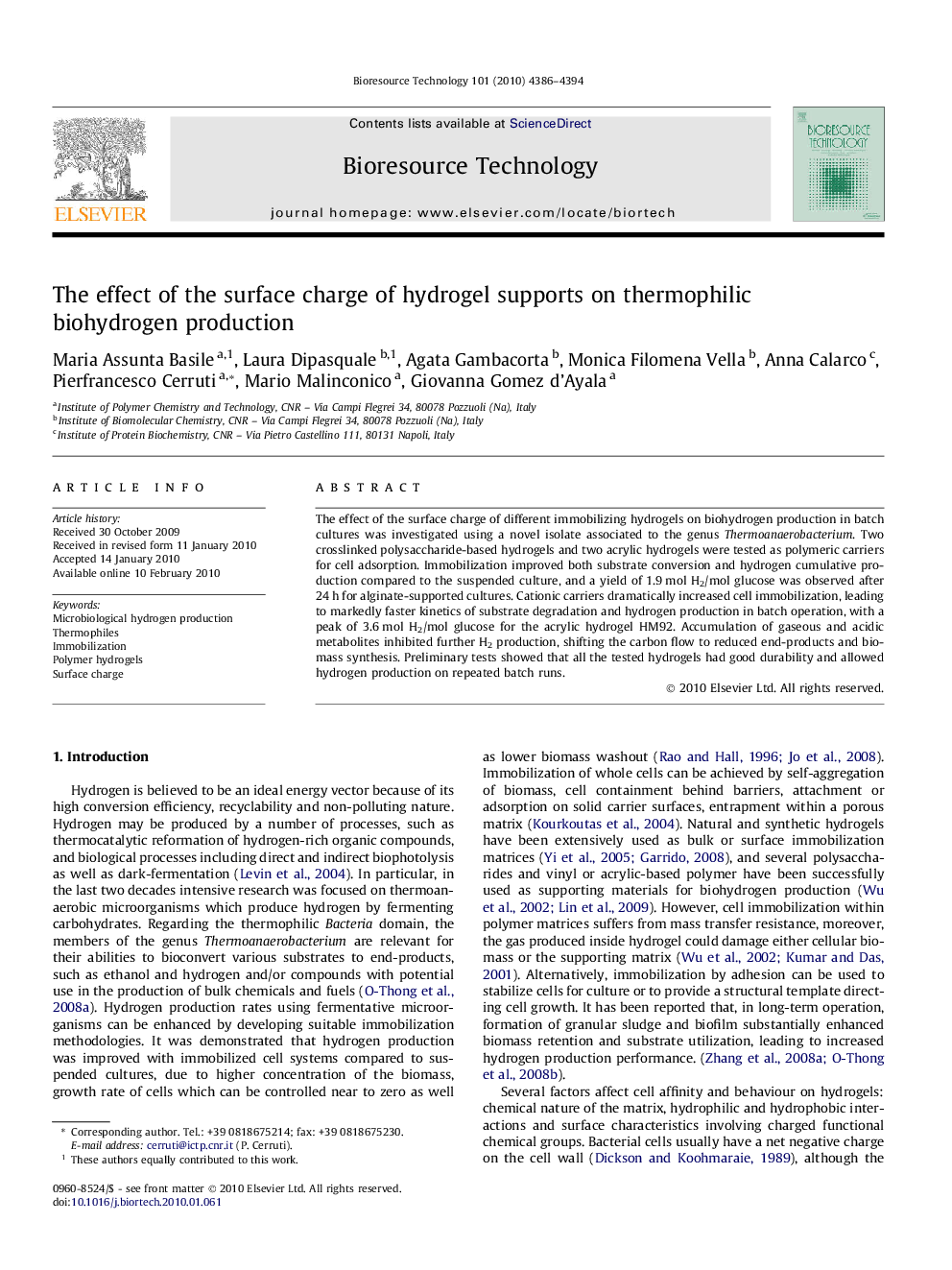| Article ID | Journal | Published Year | Pages | File Type |
|---|---|---|---|---|
| 10395610 | Bioresource Technology | 2010 | 9 Pages |
Abstract
The effect of the surface charge of different immobilizing hydrogels on biohydrogen production in batch cultures was investigated using a novel isolate associated to the genus Thermoanaerobacterium. Two crosslinked polysaccharide-based hydrogels and two acrylic hydrogels were tested as polymeric carriers for cell adsorption. Immobilization improved both substrate conversion and hydrogen cumulative production compared to the suspended culture, and a yield of 1.9Â mol H2/mol glucose was observed after 24Â h for alginate-supported cultures. Cationic carriers dramatically increased cell immobilization, leading to markedly faster kinetics of substrate degradation and hydrogen production in batch operation, with a peak of 3.6Â mol H2/mol glucose for the acrylic hydrogel HM92. Accumulation of gaseous and acidic metabolites inhibited further H2 production, shifting the carbon flow to reduced end-products and biomass synthesis. Preliminary tests showed that all the tested hydrogels had good durability and allowed hydrogen production on repeated batch runs.
Related Topics
Physical Sciences and Engineering
Chemical Engineering
Process Chemistry and Technology
Authors
Maria Assunta Basile, Laura Dipasquale, Agata Gambacorta, Monica Filomena Vella, Anna Calarco, Pierfrancesco Cerruti, Mario Malinconico, Giovanna Gomez d'Ayala,
